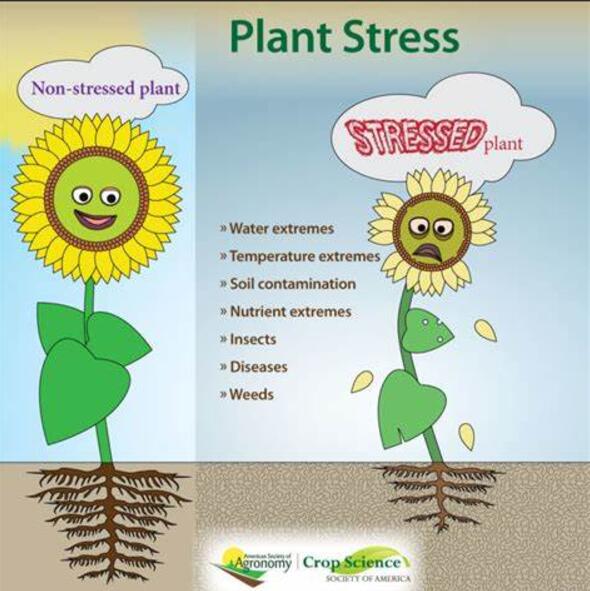Untapped potential of calcium and nano-calcium to develop abiotic stress resilience in photosynthetic machinery: The primary source of plant food and fuels
IF 6.8
Q1 PLANT SCIENCES
引用次数: 0
Abstract
Photosynthesis is a special mechanism that has formed life on earth and created the conditions for all known life. The function of calcium (Ca) as a secondary messenger in plants has been the subject of substantial research in recent decades. Due to their sessile nature, plants are subject to a variety of abiotic stresses, such as pesticide pollution, heavy metals, salt, drought, nutrient deficiencies, light intensity, and severe temperatures. Abiotic stresses mainly lower plants' photosynthetic efficiency because they have detrimental effects on gas exchange parameters, electron transport processes, photosystem performance, and chlorophyll production. The decline in photosynthetic capacity of plants due to these stresses is directly associated with reduction in yield. Therefore, detailed information of the role of calcium (Ca) and nano-Ca on photosynthetic machinery and better understanding of the photosynthetic machinery could help in developing new strategies with higher yield even under stressed environments. Interestingly, in this review, we provide an overview of insight into mechanism affecting photosynthesis under abiotic stresses. The present review explains how several abiotic stressors can negatively affect the photosynthesis mechanism and Ca and nano-Ca mediated-regulation in plant photosynthesis. The review also highlights the advantages of using nano-Ca to increase photosynthetic efficiency.
求助全文
约1分钟内获得全文
求助全文
来源期刊

Plant Stress
PLANT SCIENCES-
CiteScore
5.20
自引率
8.00%
发文量
76
审稿时长
63 days
期刊介绍:
The journal Plant Stress deals with plant (or other photoautotrophs, such as algae, cyanobacteria and lichens) responses to abiotic and biotic stress factors that can result in limited growth and productivity. Such responses can be analyzed and described at a physiological, biochemical and molecular level. Experimental approaches/technologies aiming to improve growth and productivity with a potential for downstream validation under stress conditions will also be considered. Both fundamental and applied research manuscripts are welcome, provided that clear mechanistic hypotheses are made and descriptive approaches are avoided. In addition, high-quality review articles will also be considered, provided they follow a critical approach and stimulate thought for future research avenues.
Plant Stress welcomes high-quality manuscripts related (but not limited) to interactions between plants and:
Lack of water (drought) and excess (flooding),
Salinity stress,
Elevated temperature and/or low temperature (chilling and freezing),
Hypoxia and/or anoxia,
Mineral nutrient excess and/or deficiency,
Heavy metals and/or metalloids,
Plant priming (chemical, biological, physiological, nanomaterial, biostimulant) approaches for improved stress protection,
Viral, phytoplasma, bacterial and fungal plant-pathogen interactions.
The journal welcomes basic and applied research articles, as well as review articles and short communications. All submitted manuscripts will be subject to a thorough peer-reviewing process.
 求助内容:
求助内容: 应助结果提醒方式:
应助结果提醒方式:


